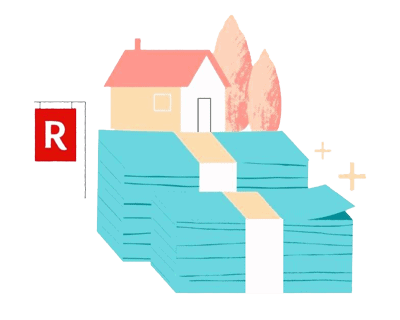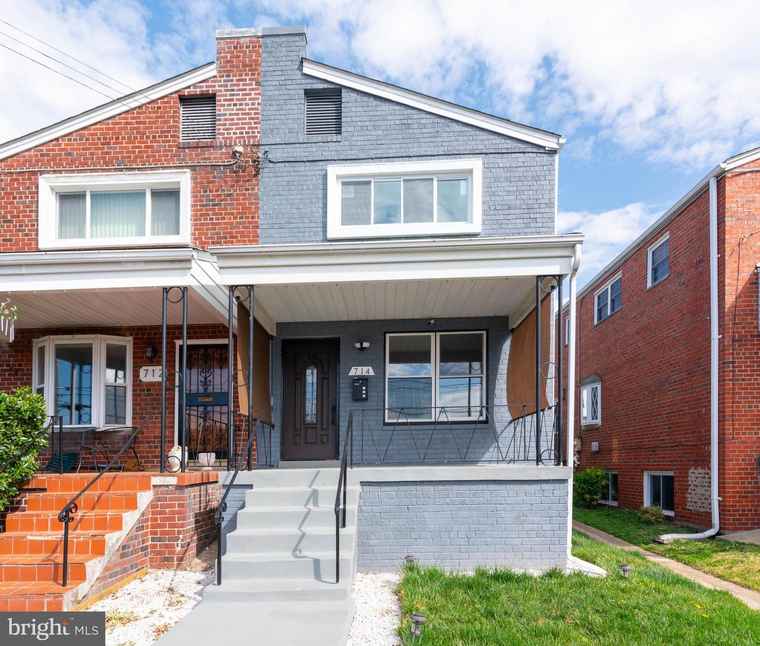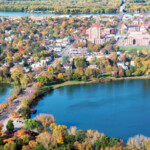Congratulations! You’re just a few steps away from closing on your new home in Wisconsin. But before you can officially get the keys, one of the last steps is to pay closing costs.
Closing costs are the fees and expenses associated with finalizing a real estate transaction and transferring ownership of a property from the seller to the buyer. To help prepare you for the final steps of the homebuying process, this Redfin article will break down how much closing costs are in Wisconsin, who pays for them, and what costs you can expect to pay as a buyer and as a seller.

How much are closing costs in Wisconsin?
In addition to the down payment, homebuyers will also need to pay closing costs before securing the keys to their new home. Closing costs in Wisconsin typically range from 2%-5% of the home’s purchase price. But it’s important to remember that this is just a range and the total amount will depend on numerous factors, such as the buyer’s loan program or negotiations made with the seller.
For example, if you’re buying a home in Milwaukee, which has a median sale price of $215,000, closing costs could range anywhere from $4,300 to $10,750. Or, let’s say that you’re buying a home in Madison, which has a median sale price of $425,000. Closing costs for a home here could be between $8,500 and $21,250.
Who pays closing costs in Wisconsin?
So, who pays for closing costs in Wisconsin? In most transactions, both the buyer and seller will pay closing costs. But, each party’s closing costs amount will vary depending on what they are required to pay. Keep in mind that it’s common for the buyer to pay closing costs out of pocket, while the seller’s closing costs are usually deducted from the home sale proceeds.
Buyer closing costs in Wisconsin
For homebuyers in Wisconsin , you can expect to pay between 2%-5% of the purchase price. In most cases, you’ll pay earnest money, typically 1% to 3% of the home price, upon reaching mutual acceptance in your home purchase. This deposit is subtracted from your closing costs, reducing the total amount due at closing. Let’s break down some of the common closing costs covered by the buyer:
- Appraisal fee: Your mortgage lender will require a home appraisal to ensure the home value is equal to or more than the loan amount. Home appraisals typically cost between $300 and $500, depending on location. If you pay at the time of service, it will not be included in your closing costs.
- Inspection fee: Although not required, getting a home inspection in Wisconsin is highly recommended. Home inspections generally range from $300 to $500 in cost and are usually paid at the time of service. However, if not, it will need to be paid at closing.
- Loan origination fee: Your lender may charge a fee for creating your loan. It’s important to inquire about what this cost covers and whether it’s negotiable to potentially avoid high costs.
- Loan processing fee: In addition to the origination fee, your lender may also charge a fee for processing your loan. This typically covers underwriting and related services. It’s recommended to discuss this fee with your lender to understand what this fee covers and if it can be waived.
- Loan discount points: If you’ve purchased points to lower your interest rate, you’ll usually pay a one-time fee at closing. Each point can lower your rate by 0.25% to 0.5%. Consider your long-term plans, such as how long you plan to own the home or if you plan to re-finance, before purchasing points.
- Private mortgage insurance (PMI): Required for down payments under 20%, PMI might involve an upfront fee at closing, depending on the loan type. It’s usually part of your monthly payment, but some loans offer the option to pay it as a one-time fee.
- Title insurance: Title insurance is a one-time closing cost, with buyers commonly paying for both lender and owner policies.
- Homeowners insurance: Your annual homeowners insurance premium may be included in your closing costs in Wisconsin .
- Homeowners Association dues: If your property is part of a homeowners association, you’ll likely pay one month’s dues upfront at closing. These fees vary and contribute to maintenance and operational costs.
- Property taxes: Buyers may have to prepay property taxes as part of their closing costs in Wisconsin .
Seller closing costs in Wisconsin
How much closing costs are in Wisconsin for sellers will vary between each transaction, but below are some of the common fees and costs that a seller pays for:
- Real estate agent commission fees: These fees can be a significant cost for sellers. Commission fees may vary and are subject to negotiation. Sellers should discuss their options with their agent.
- Homeowners Association fees: If the property is part of an HOA, the seller may need to pay a variety of fees. These can include HOA transfer fees, outstanding dues, and possibly a fee for obtaining HOA documents required by the buyer. The exact fees will depend on the HOA’s rules and regulations.
- Property taxes: Any outstanding property taxes will be due at this time. However, if the seller has prepaid property taxes for the period that extends beyond the closing date, they may be credited back for the portion they’ve paid but won’t use.
- Title insurance: As part of closing costs for sellers in Wisconsin , sellers may pay for owner’s title insurance. Typically, this cost is based on the home’s sale price.
- Transfer taxes: In Wisconsin , there is a state levied tax on the transfer of ownership of real estate. Sellers can expect to pay a one-time transfer tax as part of closing costs. There may also be additional taxes levied by local governments, such as counties and cities.
Median home sale price data from the Redfin Data Center during July 2024.


























